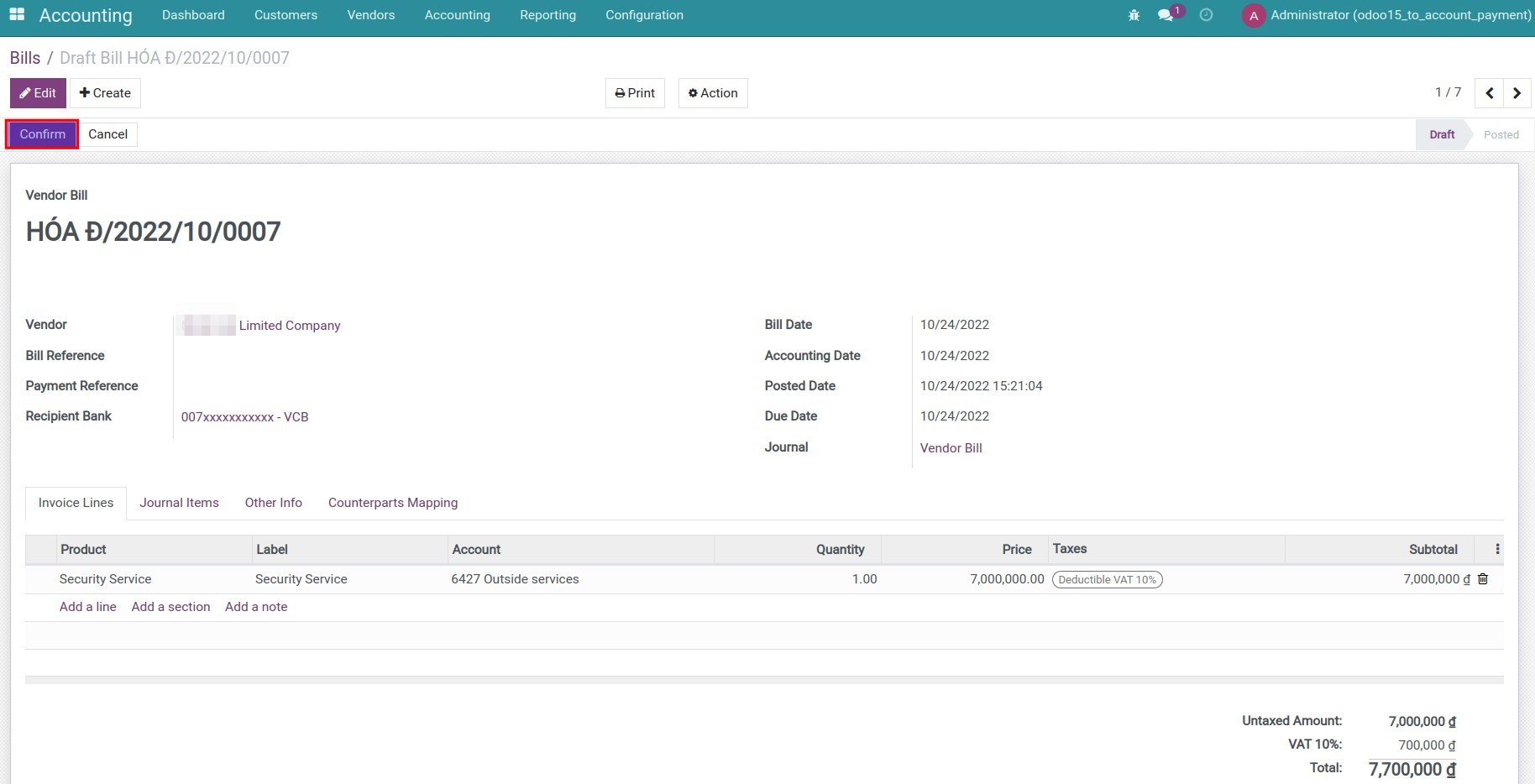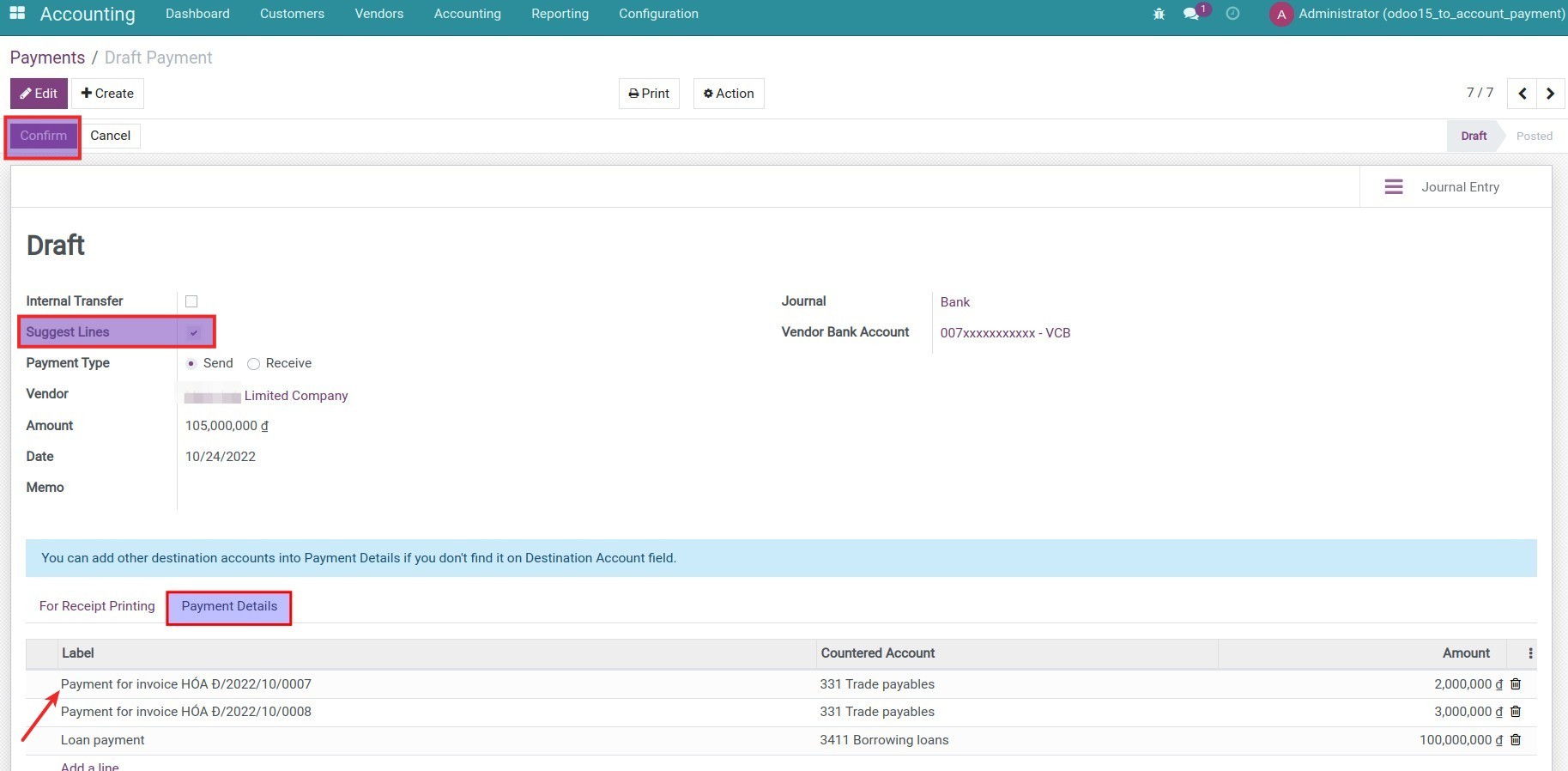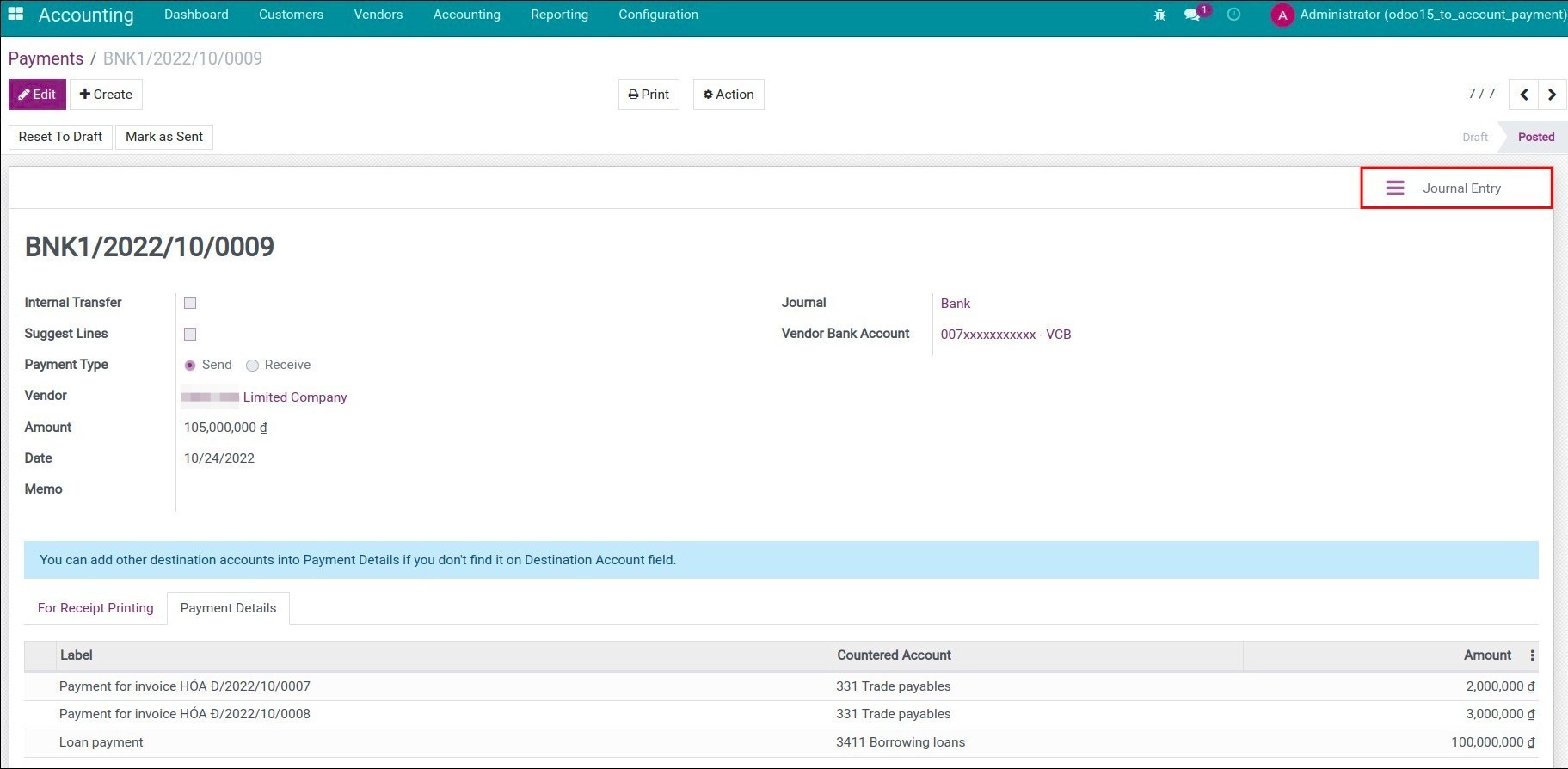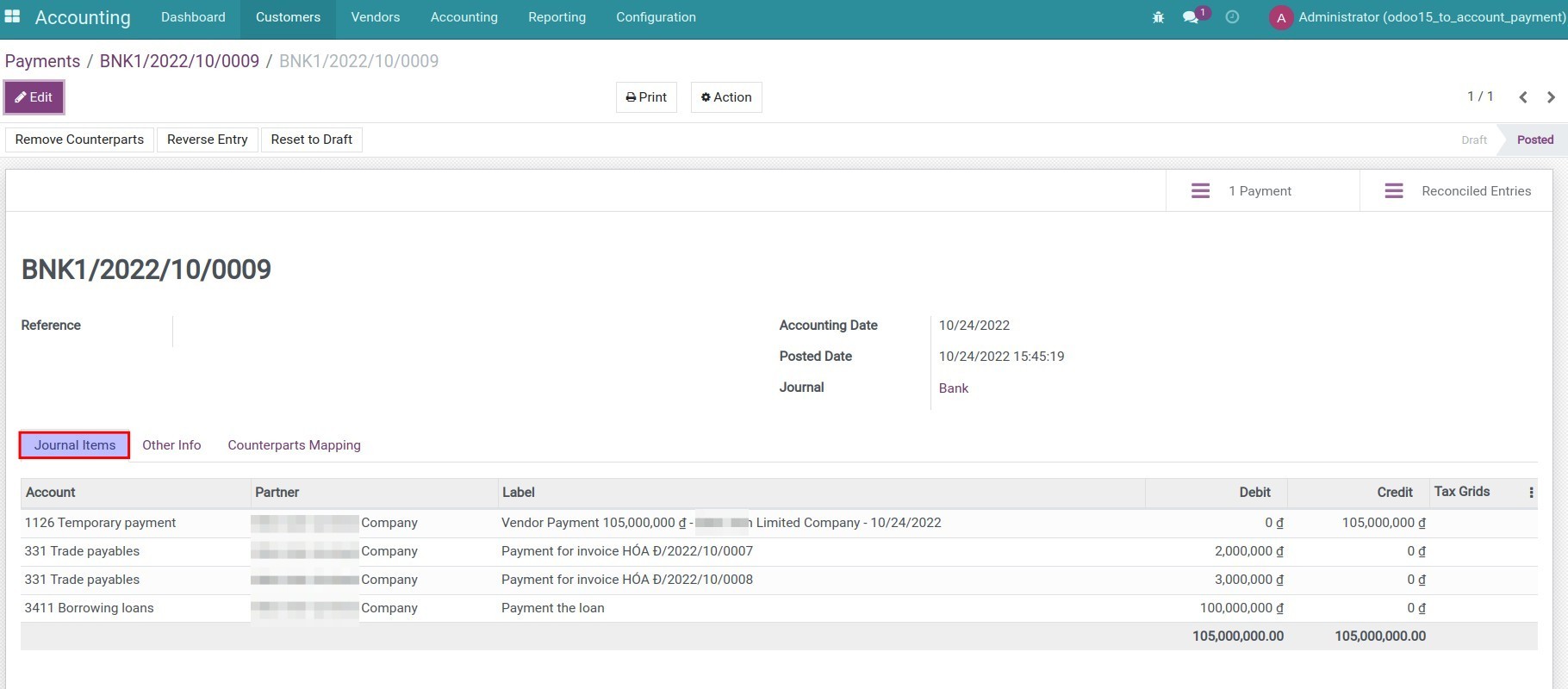Demo video: Payment with Payment Lines
The problem
1. Currently, Odoo has 3 payment methods. Users can't create multiple payable/receivable lines in one payment:
Receive:
- Debit: Cash account (Cash in bank account);
- Credit: Accounts receivable.
Send:
- Debit: Accounts payable;
- Credit: Cash account (Cash in bank account).
Internal transfer:
- Debit: Cash account (Cash in bank account);
- Credit: Cash account (Cash in bank account).
2. The journal items related to unrealized debts of partners have not been suggested yet.
Solutions
1. Improve the Payments in Accounting software.
When the user selects the payment type as Send or Receive in the payment, the system will allow them to add the payable or receivable lines on the Payment Details tab with editable account and money amount.
If the Payment details tab doesn't have any line, the system will use the default account to generate the journal entry, for example:
- [1] Debit (accounts payable): $100;
- [2] Credit (Cash account): $100.
If you add the payment lines, the system will generate the journal entry base on the payment lines, for example:
- [1] Debit (accounts payable 1): $50;
- [2] Debit (accounts payable 2): $30;
- [3] Debit (accounts payable 3): $20;
- [4] Credit (Cash account): $100.
2. Automatically suggest journal items related to the partner's debts that have not been reconciled with the payment.
This will save time for employees and reduce the risk of mistakes.
Supported Editions
- Community Edition
- Enterprise Edition
Installation
- Navigate to Apps.
- Search with keyword to_account_payment.
- Press Install.
This software and associated files (the "Software") may only be
used
(executed, modified, executed after modifications) if you have
purchased a
valid license from the authors, typically via Odoo Apps,
or if you
have
received a written agreement from the authors of the
Software (see the
COPYRIGHT file).
You may develop Odoo modules that use the Software as a library
(typically
by depending on it, importing it and using its
resources), but
without
copying any source code or material from the
Software. You may distribute
those modules under the license of your
choice, provided that this
license
is compatible with the terms of
the Odoo Proprietary License (For
example:
LGPL, MIT, or proprietary
licenses similar to this one).
It is forbidden to publish, distribute, sublicense, or sell
copies of the
Software or modified copies of the Software.
The above copyright notice and this permission notice must be
included in
all copies or substantial portions of the Software.
THE SOFTWARE IS PROVIDED "AS IS", WITHOUT WARRANTY OF ANY KIND,
EXPRESS OR
IMPLIED, INCLUDING BUT NOT LIMITED TO THE WARRANTIES OF
MERCHANTABILITY,
FITNESS FOR A PARTICULAR PURPOSE AND
NONINFRINGEMENT. IN NO EVENT
SHALL THE
AUTHORS OR COPYRIGHT HOLDERS
BE LIABLE FOR ANY CLAIM, DAMAGES OR OTHER
LIABILITY, WHETHER IN AN
ACTION OF CONTRACT, TORT OR OTHERWISE,
ARISING
FROM, OUT OF OR IN
CONNECTION WITH THE SOFTWARE OR THE USE OR OTHER
DEALINGS IN THE
SOFTWARE.





